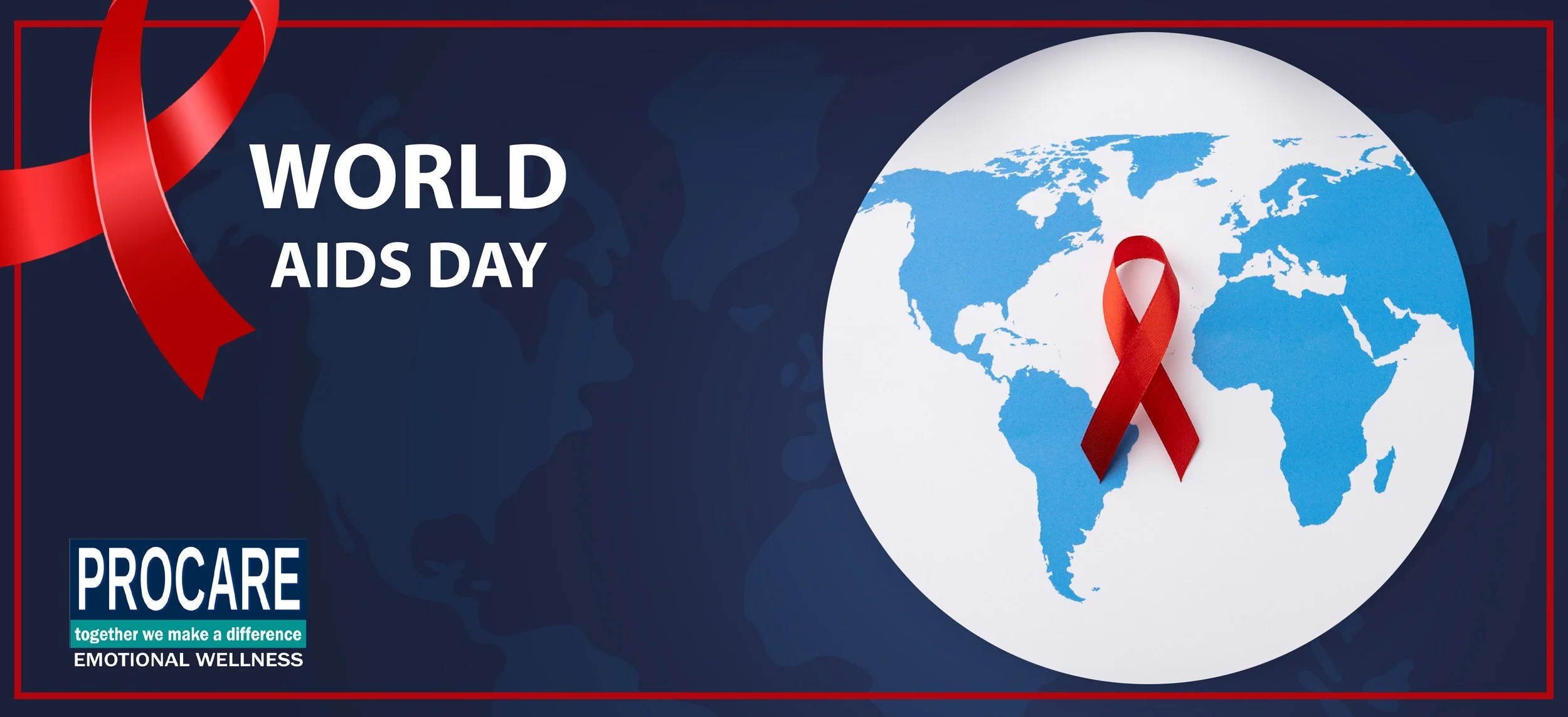World AIDS Day 2022
Mental Health and HIV
HIV and AIDS – Basic facts
Worlds AIDS Day is observed on 1 December each year. This year, we would like to highlight that as a society, we need to do more to integrate mental health and HIV services.
HIV stands for Human Immunodeficiency Virus, which is the virus that causes HIV infection.
AIDS stands for Acquired Immuno-Deficiency Syndrome. AIDS is the most advanced stage of HIV infection.
HIV attacks and destroys the infection-fighting CD4 cells (CD4 T lymphocytes) of the immune system. The loss of CD4 cells makes it difficult for the body to fight off infections and certain cancers. Without treatment, HIV can gradually destroy the immune system and HIV infection advances to AIDS.
The spread of HIV from person to person is called HIV transmission. HIV is spread through certain body fluids from a person who has HIV.
You cannot get HIV by shaking hands or hugging a person who has HIV. You also cannot get HIV from contact with objects, such as dishes, toilet seats, or doorknobs used by a person with HIV. HIV is not spread through the air or water or by mosquitoes, ticks, or other blood-sucking insects.
To reduce your risk of HIV infection, use condoms correctly every time you have sex, limit your number of sexual partners, and never share injection drug equipment.
HIV, AIDS and Mental Health
People living with HIV are at a greatly increased risk of developing mental health conditions, often suffering from depression and anxiety as they adjust to their diagnosis and adapt to living with a chronic infectious disease.
People living with mental health problems can also be at higher risk of HIV. The risks are exacerbated by low access to information and knowledge of HIV, including how to prevent it, injecting drug use, sexual contact with people who injects drugs, sexual abuse, unprotected sex, and low use of condoms.
HIV affects the most vulnerable and marginalised in society, who are also disproportionally affected by mental health issues. By integrating HIV and mental health services we will be able to reach more people with the specialist care and lifesaving support they urgently need.
Currently, very few health services are addressing the HIV-related needs of people living with mental health issues of people living with HIV. This situation needs to change. Studies conducted over five continents have estimated that HIV prevalence among people living with severe mental disorders could be between 1.5% in Asia and up to 19% in Africa.
People living with HIV can experience mental health issues that can affect their quality of life and stop them from seeking health care, adhering to treatment and continuing in care. Studies across 38 countries show that 15% of adults and 25% of adolescents living with HIV reported depression or feeling overwhelmed, which could be a barrier to adherence to antiretroviral therapy.
In addition, the treatment itself can cause a wide range of side effects on the central nervous system, including depression, nervousness, euphoria, hallucinations and psychosis. Studies in Africa found a 24% prevalence of depression among people living with HIV.
Identifying mental health issues among people living with HIV is critical; however, far too often those go undiagnosed and untreated. There are many reasons for this, all of which need to be addressed. People may not want to reveal their psychological state to healthcare workers for fear of stigma and discrimination and healthcare workers may not have the skills or training to detect psychological symptoms or may fail to take the necessary action for further assessment, management and referral if symptoms are detected.
Mental health services should ensure access to voluntary and confidential HIV testing and counselling for people who may be at increased risk of HIV. Primary health-care providers must be trained to recognise and treat common mental health and substance-use disorders and refer people to expert care.
Prevention, testing, treatment and care services must meet the complex medical, psychological and social needs of people affected by HIV and mental health issues, which can be best managed through integrated programmes. Integrated approaches need to be across sectors and involve social, legal, health care and educational services and engage community-based organisations.
Integrating mental health and HIV programmes can prevent new HIV infections and improve the health and well-being of people living with and affected by HIV.
An AIDS diagnosis can be hard to process, but there is always mental health support available. Our team of counsellors are here to help.
0861 776 227
072 7164 935
admin@procare.co.za


